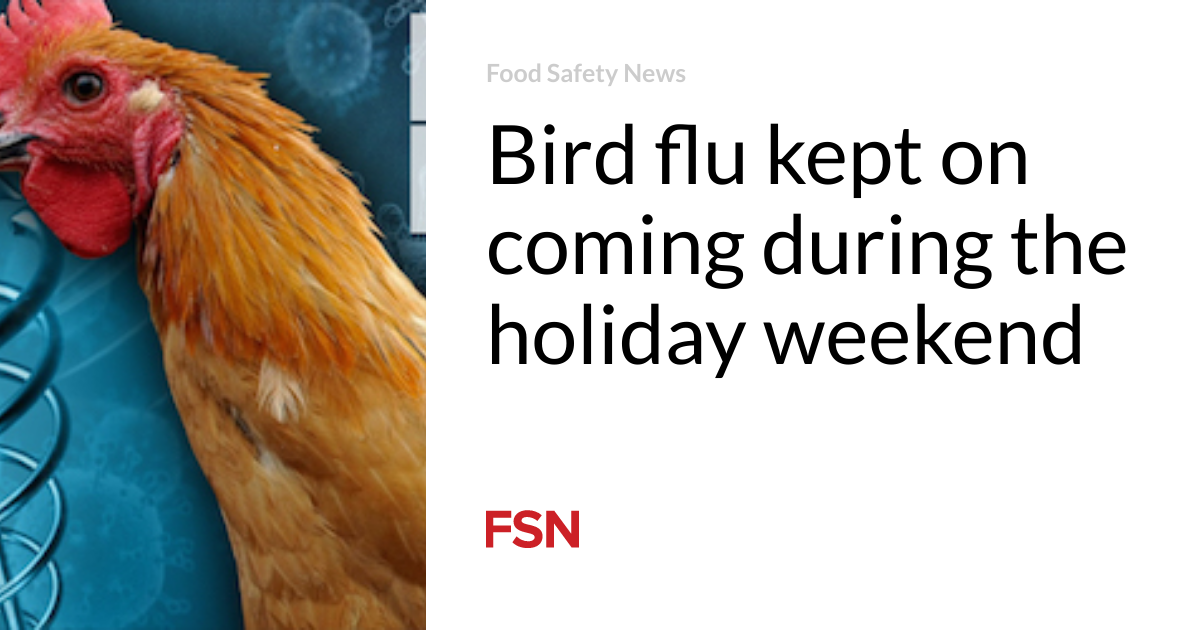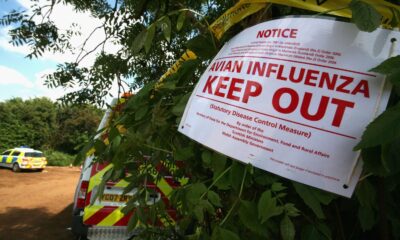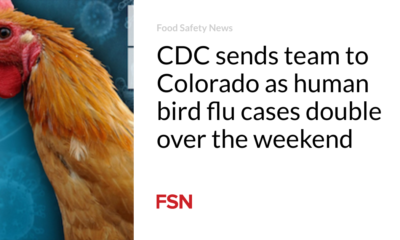Food
Over the holiday weekend, the bird flu kept coming

Since bird flu was first reported in dairy cows on March 25, scientific research has progressed to the point where findings and expert opinions are being provided every week.
Meanwhile, farmers and ranchers are concerned and looking for more ways to protect their herds and learn more about the spread of the virus. And while the stark warning not to drink raw milk puts the bird flu virus in the category of foodborne illness, that could be just the beginning
This week, Scott Hensley, a professor of microbiology at the University of Pennsylvania, said the threat of a pandemic is currently low but “could increase rapidly.”
That was slightly more optimistic than last month’s prediction by former Centers for Disease Control and Prevention (CDC) director Robert Redfield that it is only a matter of time before humans are caught up in a bird flu pandemic. He said that “bird flu will invade humans” and that this could cause “significant mortality”.
It turns out that the mammary glands of dairy cows are being targeted by the H5N1 avian virus, according to a report from the University of Wisconsin-Madison in the July 8 journal Nature. The findings may not be limited to dairy cows. A bird flu virus from an infected person in 2004 also reached the mammary glands of mice and ferrets.
Additional experiments showed that the virus was not very effective at spreading through the air.
With direct consequences for commercial poultry and dairy cows, Colorado was the center for bird flu this past Independence Day weekend. On July 3, another farm worker was reported infected with bird flu, which is linked to dairy cows.
Since the beginning of 2022, the CDC has reported five cases of human bird flu.
“Based on the information currently available, CDC’s current H5N1 avian flu risk to human health remains low,” CDC’s official statement said.
Additionally, Colorado Governor Jared Polis didn’t make it through the Fourth of July weekend before being forced to declare a disaster for a farm in Weld County. Avian flu on egg-laying farm kills another 1.8 million chickens – a major resurgence of bird flu on a commercial farm that lost 6 million birds to the virus.
The governor’s declaration activates the state’s emergency operations plan and makes additional resources available for the response.
(To sign up for a free subscription to Food Safety News, click here)











